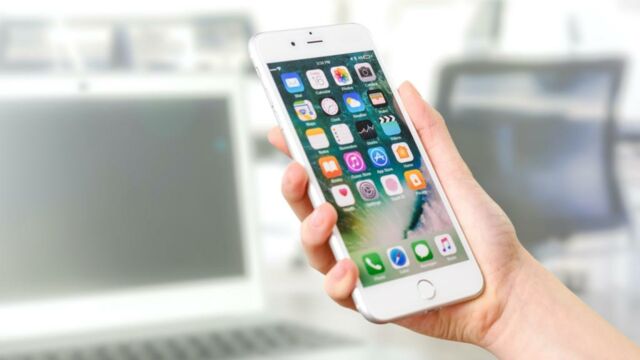iPhone users are warned over their passcode, here's how it can make you lose all your money

Your passcode is designed to keep your iPhone and its data safe, but it’s far too vulnerable to be considered truly secure.
According to the recently published report, if your iPhone gets stolen, the thieves make use of not only your device but every valuable piece of data inside it. The passcode that is meant to protect your information does the opposite. Here is why.
Discover our latest podcast
An iPhone passcode is not as safe as you think
Recently published The Wall Street Journal report by journalist Joanna Stern details how thieves aren’t just taking iPhones, but all the valuable data, including the financial one, in them.
More under this adMore under this adIt give the example of Reyhan Ayas, a 31-year-old economist whose iPhone 13 Pro Max was stolen outside a bar. Within minutes, she found herself unable to access her Apple account and all the data associated with it, including her photos, contacts and notes. Over the next 24 hours, approximately $10,000 / £8,000 disappeared from her bank account.
Here is why a passcode alone is not enough.
Watch: iPhone thieves across the country are locking people out of their Apple accounts and draining their bank accounts. Here's how do they do it and how can you protect yourself. https://t.co/eNYOKHM1CM
— The Wall Street Journal (@WSJ) April 10, 2023
Read more:
⋙ Millions have their data stolen in global fraud: Check here to see if you’re a victim
⋙ Gmail: Billions warned of YouTube email that steals crucial data, here's how to spot it
Relying on an iPhone passcode can lead to you losing money
Your passcode unlocks deeply personal parts of your iPhone.
The four- or six-digit codes are too easy to spy on, even from a distance. Some thieves have even thought through how to capture passwords with precision, tasking their partners in crime with recording unsuspecting people using the passcodes, for easy reference after a theft.
Don’t Trust Your iPhone’s Passcode to Keep Your Data Safe https://t.co/D4D8i0Gg5Ypic.twitter.com/3GGWmYqB4c
— Lifehacker (@lifehacker) February 28, 2023
Once a criminal identifies those digits on your Lock Screen, your device and all the data in it are fully compromised. They can reset your iCloud password within minutes.
Face ID won’t protect your sensitive apps, either, since they can all be unlocked with the passcode as well. That includes personal notes, banking apps, and money transfer apps leading to you losing money.
More under this adMore under this adHere is how to stay safe
Experts recommend switching to a longer, alphanumeric password - one with letters, numbers, and special characters as it’s far more secure. You can do this from Settings > Face ID & Passcode > Change Passcode > Passcode Options.
Don’t let anyone see you type your passcode at any time and try not to use a password manager for financial apps. You can protect yourself by choosing a third-party password manager like 1Password or Bitwarden, as they require a separate master password to access.
More under this adMore under this adFurther secure your digital life with #2FA. What is your favorite authenticator? https://t.co/zLXI5K8q6ypic.twitter.com/xcva7eiSMW
— Bitwarden (@Bitwarden) April 13, 2023
It’s important to opt for a two-factor authentication (2FA) method if your bank app allows for it, and make sure it’s a dedicated authenticator app, not one that works via text message. Consider an app like Aegis or Raivo as they let you set a unique password rather than relying on your iCloud password for entry.
More under this adMore under this adExperts also advise deleting all the entries that feature your credit cards, bank details, social security number, or identification documents from your phone. A scanned copy of your credit card is sometimes all a bad actor needs to wreak havoc on your bank account.
Read more:
⋙ New scam that targets travellers is on the rise, here's how it could affect your next holiday
⋙ WhatsApp: Millions warned of scam that could steal access to phone, here’s how you can stay safe
Sources used:
- LifeHacker: 'Don’t Trust Your iPhone’s Passcode to Keep Your Data Safe'
- PressCitron: 'Your iPhone code threatens your bank account, here's why'